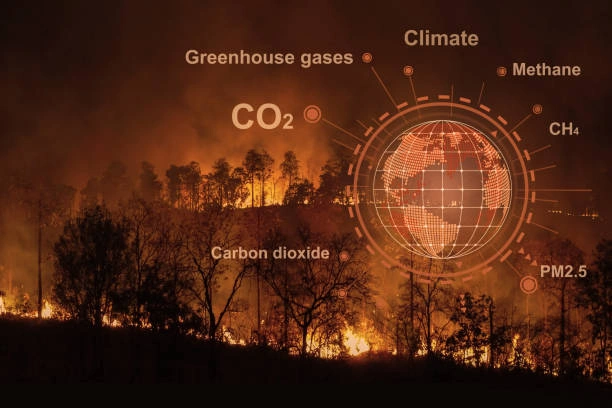Course Overview
Climate change poses an unprecedented threat to the life and livelihoods of billions of people. It is essential to ensure that the measures are taken work – and work well. Monitoring and evaluation (M&E) are crucial for determining where to direct expenditures, what is effective and ineffective, why this is the case, and how to draw lessons from past mistakes to optimize impact. M&E promotes smart and successful investments in climate change adaptation. Although there are numerous M&E systems for climate change adaptation in place at the project, national, and international levels, the area is still relatively new and is expanding quickly.
The M&E for climate change course provides an overview of the basic principles and methodologies for program monitoring and evaluation with emphasis on practical application for climate change adaptation researchers and practitioners.
Course Duration
5 Days
Who Should Attend
- Climate change professionals
- Program/project managers
- Monitoring and evaluation specialists
- Environmental consultants
- Government officials
- NGO staff
- Researchers and academics
- Donor agency representatives
Course Benefits
- Acquire comprehensive M&E skills tailored to climate change adaptation.
- Enhance your ability to contribute to the effectiveness and sustainability of adaptation initiatives.
- Gain practical experience through hands-on exercises and real-world case studies.
- Network with professionals and experts in the field of climate change and adaptation.
Course Objectives
By the end of this course, participants will be able to
- Understand the fundamental principles and concepts of monitoring and evaluation in the context of climate change adaptation.
- Develop skills to design and implement M&E frameworks for climate adaptation programs.
- Learn how to develop and use indicators to measure adaptation outcomes and impacts.
- Gain proficiency in data collection, management, and analysis techniques specific to climate adaptation.
- Enhance the ability to produce comprehensive M&E reports and communicate findings to stakeholders.
- Explore best practices and lessons learned from successful climate adaptation projects globally.
Course Outline:
Overview of Climate Change Adaptation Programs
- Introduction to climate change adaptation
- Sustainable climate change adaptation programs
- Climate change adaptation program life cycle
Introduction to M&E
- Definition of Monitoring and Evaluation
- Why Monitoring and Evaluation are important
- Key principles and concepts in M&E
- M&E in a project lifecycle
- Complementary roles of Monitoring and Evaluation
- M&E for climate change adaptation projects
M&E Frameworks in Climate Change Adaptation Programs
- Conceptual Frameworks
- Results Frameworks
- Logical Framework Analysis (LFA)
- Log Frame – Design of climate change adaptation projects using Log Frame
Climate Change Adaptation Indicators
- Indicators selection
- Indicator metrics
- Linking indicators to results
- Indicator matrix
- Climate change adaptation indicator performance tracking
- Sector-wide indicators for climate change adaptation
- Specific indicators for Sub-sectors of climate change adaptation
- Indicators for thematic areas related to climate change adaptation
M&E Plans in Climate Change Adaptation Programs
- Importance of an M&E Plan
- Documenting M&E System in the M&E Plan
- Components of M&E Plan
- Using M&E Plan to implement monitoring and evaluation in a Project
Data Management for M&E in Climate Change Adaptation Programs
- Sources of Data: Information systems, surveys, participatory poverty assessments, financial management tools
- Use of different Surveys in data collection for climate change adaptation projects
- Participatory methods of data collection for climate change adaptation projects
- Data analysis for climate change adaptation projects
Gender Perspective in M&E for Climate Change Adaptation Programs
- Importance of gender in M&E
- Integrating gender into program logic
- Setting gender-sensitive indicators
- Collecting gender disaggregated data
- Analyzing M&E data from a gender perspective
- Appraisal of projects from a gender perspective
- Issues with integrating gender into M&E
Performance Evaluation of Climate Change Adaptation Programs
- Determining evaluation points from the results framework
- Components of evaluations: implementation and process evaluations.
- Evaluation designs- experimental, quasi-experimental and non-experimental
- Performance evaluation process
- Evaluation findings sharing and dissemination
Impact Evaluation in Climate Change Adaptation Programs
- Why impact evaluation is important
- Project attribution
- Counterfactual in IE
- IE Methods; Difference in Difference & Propensity score matching
M&E Results Use and Dissemination
- Use of M&E results to improve and strengthen climate change adaptation programs
- Use of M&E Lessons Learned and Best Practices
- M&E reporting format
- M&E results in communication strategies
Customized Training
This training can be tailored to your institution needs and delivered at a location of your choice upon request.
Requirements
Participants need to be proficient in English.
Training Fee
The fee covers tuition, training materials, refreshments, lunch, and study visits. Participants are responsible for their own travel, visa, insurance, and personal expenses.
Certification
A certificate from Ideal Sense & Workplace Solutions is awarded upon successful completion.
Accommodation
Accommodation can be arranged upon request. Contact via email for reservations.
Payment
Payment should be made before the training starts, with proof of payment sent to outreach@idealsense.org.
For further inquiries, please contact us on details below:






